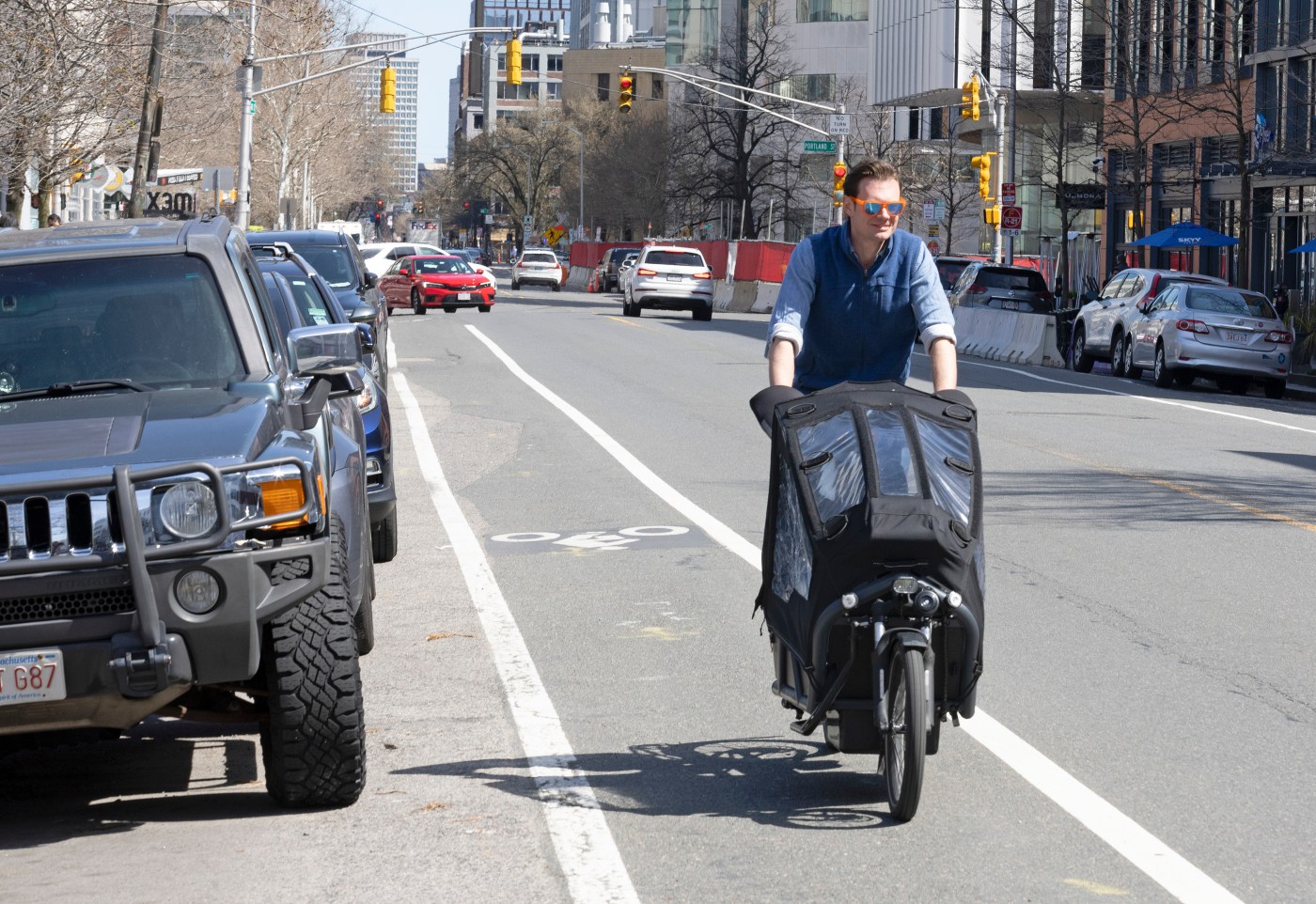
Cambridge City Council extends controversial deadline for bike lane construction
A project set to roll out 25 miles of separated bike lanes across Cambridge has a construction deadline of November 2027, a timeframe the City Council has approved for officials to gain full understanding of the potential impacts to residents and businesses.
The deadline is 18 months longer than initially anticipated, with councilors narrowly passing the policy order, 5-4, during a marathon meeting Monday.
Councilor Paul Toner, a lead sponsor of the request, said he believes the extended deadline will provide flexibility to city officials installing the bike lane network and help small businesses mitigate any potential adverse effects.
“I know I’m going to take criticism, and I’ve been criticized for this,” Toner said, “but I do care about safety, I do want us to move forward with improved cycling safety, separated bike lanes for everybody.
“But I do want to do it in such a way that we are making that transformation so residents in the impacted areas and the businesses can actually make the adjustment,” he added. “There are some businesses that have to decide whether to renew leases or not because they’re not sure whether they can make it in this.”
The approval pushes out the deadline for construction along some of the city’s busiest roadways — Cambridge and Main streets and Broadway — to November 2027 from May 2026.
Councilors in 2019 approved the cycling safety ordinance which binds the city to provide protected bike infrastructure for streets included in a master plan except in “rare” circumstances, which officials are required to justify, StreetsBlog USA reported at the time of passage.
A year later, the council amended the ordinance by increasing the network of separated bike lanes from 20 miles to 25.
In commercial corridors where construction has already occurred, Toner highlighted earlier this month, businesses have seen metered parking be removed at a 40 to 50% clip. In a qualitative survey of 300 local businesses, about half with bike lanes installed near their establishments reported a decrease in overall revenue, the Harvard Crimson reported.
Officials in February, however, said results from the survey were inconclusive as it lacked data relating to local sales taxes and other essential economic aspects.
Nearly 300 residents spoke during Monday’s meeting that stretched past midnight and recessed until Tuesday at 10 a.m. A majority spoke in opposition of extending the deadline, saying the original timeline is more than enough time for implementation to go smoothly and doesn’t risk the lives of cyclists.
Resident Lala Thaddeus sees bike lanes in a different positive light, especially the ones highlighted in the policy order.
“These bike lanes bring direct financial value, and to Cambridge residents’ lives … because they are economic throughways that connect residents to employers in Kendall and East Cambridge.”
More than 400 residents have signed a petition expressing their support for pushing the deadline out, resident Audrey Cunningham said. Cyclists opposing the extension have “total disregard for any other Cambridge citizen who does not or cannot ride a bicycle,” she said.
Sharon Cerny, owner of several storefronts along Massachusetts Avenue, said officials should rather focus on improving safety at intersections where a “majority of accidents” occur instead of removing parking spaces for small businesses and residents unable to ride bikes.
“This is a complicated issue,” she said, “and a pause will allow all parties time to analyze and provide parking infrastructure before it’s removed.”
The council shot down an amendment that would have allowed construction on Broadway and Cambridge Street to be done in halves, with the first next year and the other in 2026, without pushing out the deadline.
Vice Mayor Marc McGovern recounted how his son fell off his bike and into the street in 2016, shortly after 27-year-old Amanda Phillips died when a landscaping truck struck her after she fell off her bike when a car door opened and rammed into her.
“He was lucky that no truck was coming,” McGovern said. “People’s safety shouldn’t rely on luck. We can say though the accidents weren’t that bad, and it’s only been five people … All of that is luck. A car going 5 miles faster, the results could be different.”


